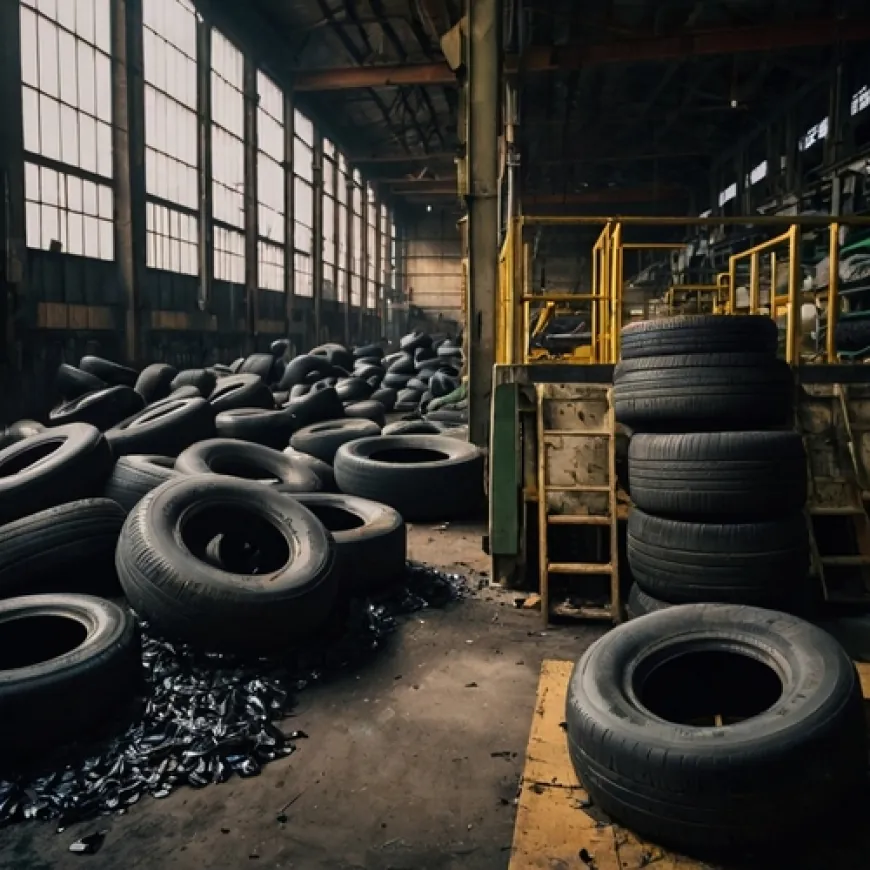Opportunities and Innovations in the GCC Tire Recycling Market for 2031
The GCC Tire Recycling Market is poised for remarkable growth as the region seeks to tackle mounting waste challenges

The GCC Tire Recycling Market is poised for remarkable growth as the region seeks to tackle mounting waste challenges and promote sustainable practices. As the demand for environmentally friendly solutions increases, tire recycling emerges as a critical component of waste management strategies across GCC countries. This article explores the opportunities and innovations shaping the market as we approach 2031.

Waste Management Challenges in the GCC
The rapid growth of the automotive sector in GCC nations has led to a significant increase in tire waste. Traditionally, used tires have been disposed of through landfilling or incineration, resulting in environmental hazards. However, this approach is unsustainable and has prompted a shift toward more efficient recycling solutions.
To address these challenges, GCC governments are implementing stringent regulations aimed at improving recycling rates. For instance, initiatives in countries like the UAE and Saudi Arabia focus on increasing public awareness about tire recycling and providing incentives for businesses to participate in sustainable practices. These regulations are pivotal in fostering a favorable environment for the GCC Tire Recycling Market to thrive.
Innovations Driving Market Growth
Technological innovations are central to the evolution of the GCC Tire Recycling Market. Emerging recycling techniques, such as devulcanization and advanced granulation processes, are gaining traction. Devulcanization allows the rubber to be processed back into a usable state, making it possible to create high-quality products from recycled tires.
Moreover, advancements in material science are enabling the development of new applications for recycled tire materials. For example, crumb rubber is increasingly used in rubberized asphalt, sports fields, and playground surfaces, creating a market for high-performance materials derived from waste tires. This trend not only addresses waste management issues but also offers economic opportunities in manufacturing and construction sectors.
Investment and Economic Potential
The economic potential of the GCC Tire Recycling Market is significant. As the region aims to diversify its economy, investing in recycling technologies presents a lucrative opportunity. Government support for recycling initiatives, coupled with private sector investments, can lead to the establishment of advanced recycling facilities, boosting job creation and fostering innovation.
Furthermore, the transition towards a circular economy is gaining momentum in the GCC. By investing in tire recycling, the region can reduce dependence on imported raw materials and enhance local production capabilities. This strategy aligns with global sustainability goals and positions the GCC as a leader in waste management.
Future Prospects
By 2031, the GCC Tire Recycling Market is expected to be transformed by technological advancements, regulatory support, and growing public consciousness regarding environmental issues. As the market evolves, collaborations between government entities, businesses, and communities will play a critical role in driving recycling initiatives.
Additionally, increased focus on research and development will lead to the discovery of new recycling techniques and applications for recycled materials. As more industries recognize the value of sustainability, the integration of recycled tire materials into various products and services will become increasingly prevalent.
In summary, the GCC Tire Recycling Market is on a promising trajectory toward growth and innovation. With the right strategies in place, the region can effectively address its waste management challenges while capitalizing on economic opportunities presented by tire recycling. Embracing these trends will not only enhance sustainability efforts but also contribute to the overall development of a circular economy in the GCC.












